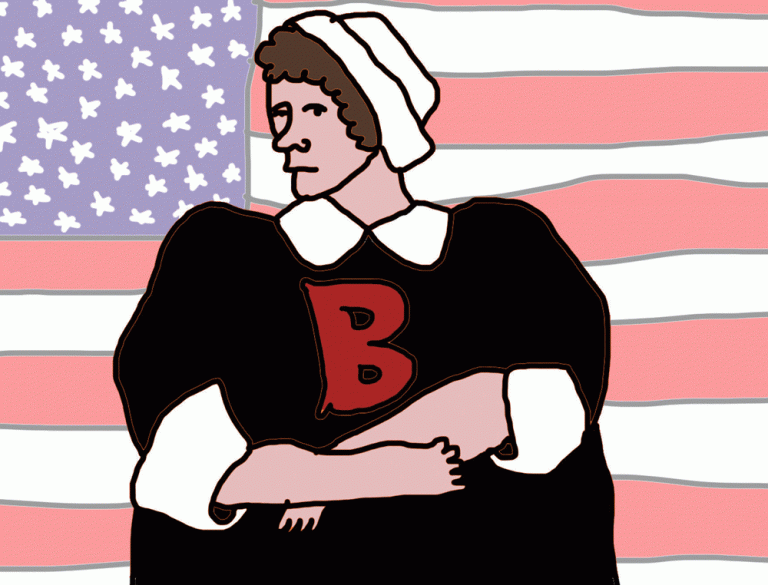
Ameen Hussaini
The terms “racist” and “bigot” have been in heavy circulation due to our current sociopolitical climate. Although these words are easy to use, it is irresponsible to label individuals as such without a great deal of consideration.
As a Muslim who grew up in conservative Orange County, I saw scores of friends and family sharing their thoughts on Facebook in the wake of Trump’s Muslim ban. The responses ranged from harsh admonition to matter-of-fact support. Like most, I look down upon arguing on Facebook but can’t help participating. An acquaintance from high school was criticizing a tweet from an hijab-wearing Muslim woman. She feared being discriminated against on a flight to Alabama because of the precedent established by the controversial executive order. My friend said that her own racist beliefs towards southerners are the real reason she felt fear.
I prepared myself for a long-winded argument that would stretch deep into the comments underneath the post. It would start civilly before inevitably degenerating into a futile lampooning of one another. I would use words like racist and bigot to describe my temporary adversary, then regret their use later when we reached a wary resolution. But I had done that numerous times before, and nothing changed.
So I decided to do something different. I messaged him directly. I told him that although the woman would most likely not have to deal with any prejudice, her fear was legitimate. I then decided to look at things from his perspective, that of a white teenager living in the suburbs of Orange County. I asked him if he felt that there was a preconceived notion that white people are incapable of empathizing with minorities.
He said that was exactly how he felt, and that he had family members in Alabama. He didn’t appreciate the stereotype that all people in the American South are intolerant. If I had instead commented on his post, I might have learned the same information, but it would be in the context of an argument. I would pass off his legitimate (though perhaps misguided) desire to defend his family members as petty excuses for his bigotry and racism.
As we talked, he began to see things from my point of view as well and realized why his post had upset me. I have family members, mainly hijab-wearing women, who have experienced racism as a consequence of their faith. So in a way, our opinions stemmed from the same place, wanting to fight for the people we love who have been victims of unfair generalizations.
Instead of having a counterproductive argument, we had a thoughtful discussion and even established a rapport with one another. This individual still holds many beliefs that I don’t agree with, but because of our conversation, I know that he is at the very least willing to talk about them and consider my position on whatever the issue may be. It is because of that fact that calling this person a bigot would not only be unnecessary, it would be blatantly incorrect.
The definition of a bigot has changed somewhat over time. Initially, it simply referred to someone who is unwilling to hear others’ thoughts and opinions. In light of the many social movements, specifically those dealing with race, that characterized the 20th and 21st centuries, the definition now includes those who are intolerant of others’ beliefs based solely on their race or ethnicity.
I could have easily come to the conclusion that my acquaintance was bigoted. I could have led myself to believe that he was dismissing the fears of that woman only because she was Muslim, but I talked to him instead. Calling someone a bigot or a racist before genuinely attempting to have a conversation with them ruins any chance of making progress. Those words are not unlike racial epithets in terms of their effect on the listener and their gross overuse. That is not to say they are equal in terms of their offense and history — but the similar effects they have on people cannot be denied.
That being said, there are definitely instances in which calling someone a racist or a bigot is justified, and should even be encouraged. If an individual repeatedly refuses to speak with anyone who holds an opposing viewpoint, or refuses based on their ethnicity or race, they are bigoted, racist, or both. Calling out truly racist or bigoted people saves other people the trouble of trying to speak to them when it will yield nothing. Still, if possible, open dialogue is always preferred. Regardless of our varying opinions, beliefs, and ideals, we’re all human, and therefore bound to have something in common.











Trumps bands seem more like they were on country’s and not Muslims. However it wasn’t christian or buddhist that caused 911. I have never seen a Muslim in my community stand up against the extreme faction of their political or is it religious point of view. Thank God that our constitution doesn’t favor any religion.
Comments are closed.